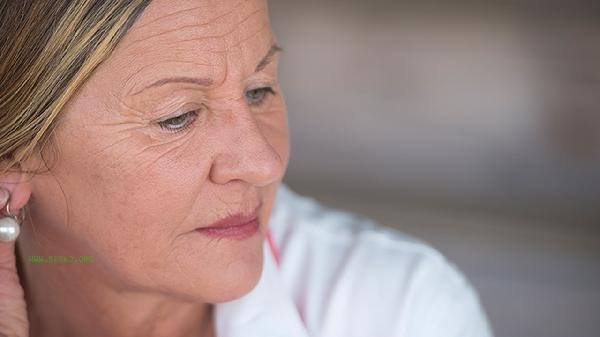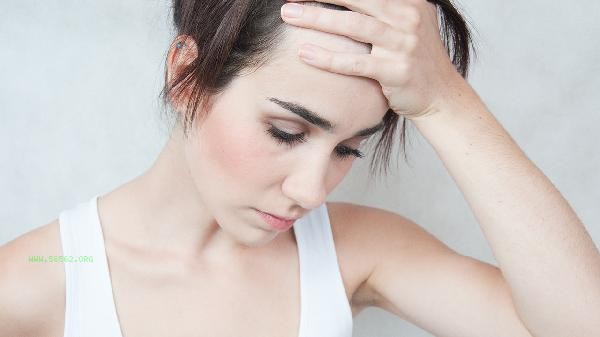Menopausal shortness of breath can be alleviated by adjusting lifestyle, supplementing nutrition, psychological regulation, traditional Chinese medicine regulation, medication treatment, and other methods. Menopausal shortness of breath is usually associated with hormonal fluctuations, autonomic nervous system dysfunction, decreased cardiovascular and pulmonary function, anemia, chronic diseases, and other factors.

1. Adjusting lifestyle
Maintaining a regular sleep schedule helps stabilize the endocrine system. It is recommended to go to bed and wake up at a fixed time every day. Moderate exercise can enhance cardiovascular function. It is recommended to engage in low-intensity aerobic exercises such as brisk walking and yoga several times a week. Avoid bad habits such as smoking and drinking alcohol, reduce caffeine intake, as these irritants may worsen palpitations and shortness of breath symptoms. Maintaining good ventilation indoors helps to facilitate smooth breathing. Wear loose clothing to avoid compressing the chest and affecting breathing.
2. Supplementing nutrition
Increasing the intake of foods rich in phytoestrogens, such as soy products, flaxseed, etc., can help balance hormone levels. Supplementing with vitamin B can improve neurological function, and whole grains and green leafy vegetables are good sources. Moderate intake of high-quality protein such as fish and lean meat to maintain muscle strength. Eat more iron rich foods to prevent anemia, such as animal liver, spinach, etc. Maintain sufficient hydration, drink enough warm water every day, and avoid dehydration causing blood to become thick.
3. Psychological regulation
Learn relaxation techniques such as deep breathing exercises and perform abdominal breathing exercises several times a day. Try meditation or mindfulness to relieve stress and help alleviate anxiety. Cultivate interests and hobbies to shift attention and reduce excessive focus on physical symptoms. Participate in social activities and communicate menopausal experiences with peers. Seeking psychological counseling when necessary, professional guidance can better cope with emotional fluctuations.

4. Traditional Chinese Medicine Regulation
Traditional Chinese medicine believes that menopausal Qi deficiency is often caused by liver and kidney yin deficiency or insufficient qi and blood, and can be treated with traditional Chinese medicine according to syndrome differentiation. Commonly used formulas such as Liuwei Dihuang Wan nourish the liver and kidneys, and Guipi Tang nourish qi and blood. Acupuncture and moxibustion therapy selects Guanyuan, Zusanli and other acupoints to regulate qi and blood. Moxibustion at acupoints such as Shenque and Qihai can warm and replenish vital energy. Tonic Diet conditioning, such as medlar and yam Congee, angelica, ginger and mutton soup, and other therapeutic recipes also have effects. When symptoms are severe, hormone replacement therapy can be used under the guidance of a doctor, and strict evaluation of indications and contraindications is required. Guweisu tablets help regulate autonomic nervous system function. Xinkeshu tablets can be used to alleviate symptoms of chest tightness and shortness of breath. Shengmai Yin oral liquid has the effect of nourishing qi and yin. Zaoren Anshen Capsules can indirectly alleviate symptoms by improving sleep quality. All medications must be consulted with a professional physician before use.
Menopausal shortness of breath patients should pay attention to monitoring symptom changes in daily life, recording the frequency of attacks and triggers. Maintain a suitable temperature in the living environment and avoid being too cold or too hot to stimulate. Eat regularly and in moderation, eat small meals frequently to reduce gastrointestinal burden. Regularly undergo health check ups to rule out other organic diseases. Cultivate a peaceful mindset and recognize that this is a normal phenomenon during the physiological transition period. When symptoms persist or worsen, timely medical attention should be sought to clarify the diagnosis. Through comprehensive regulation, most menopausal shortness of breath symptoms can be effectively improved.





Comments (0)
Leave a Comment
No comments yet
Be the first to share your thoughts!